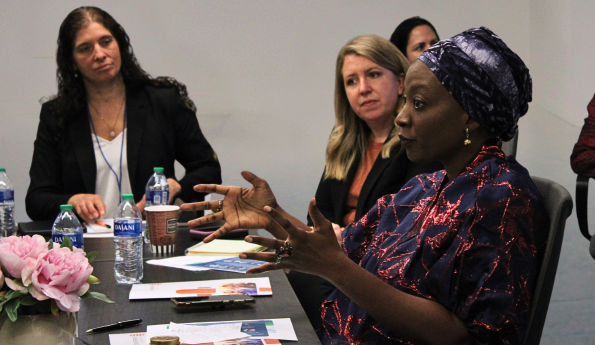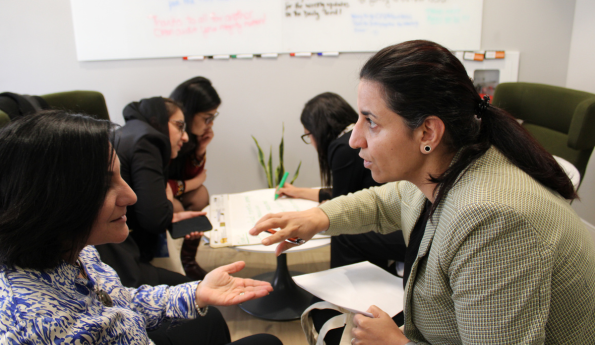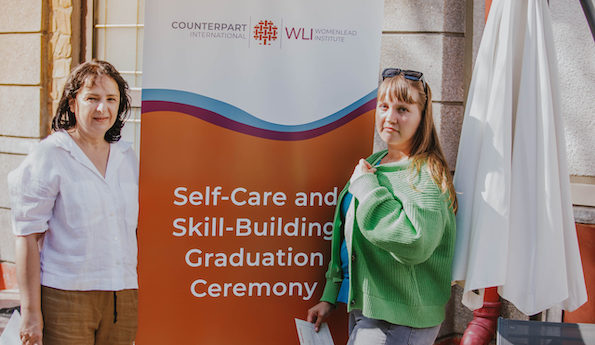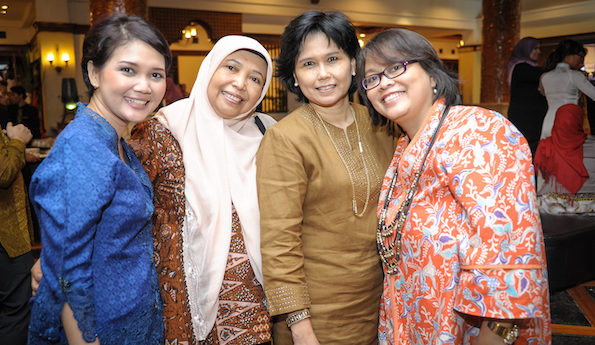Counterpart’s Global Women In Management program provides women entrepreneurs with the tools and knowledge to advance their careers, strengthen organizational systems, challenge traditional gender norms and policies, and improve and scale women’s economic empowerment programs. Participants establish connections, gain exposure, and access business opportunities through the Global Women in Managment training programs, mentorship initiatives, and networking events. The stories below highlight alumni of the program who have applied lessons learned back home, where they are changing the world for the better.
From One Woman Entrepreneur to the Next

Christien Naarden is using the knowledge and skills she gained from the Global Women In Management workshop to help other women entrepreneurs in Suriname.
Christien Naarden, a professional trainer in Suriname, offers private and group training to indigenous women entrepreneurs. She participated in our Global Women In Management workshop in Suriname where she learned how to hone fundamental business skills. Naarden specializes in private and group coaching for women from indigenous communities who own small businesses, and who usually don’t have regular opportunities to learn the necessary skills to ensure their businesses make a profit. Now she uses the business and leadership skills she gained from the program to help indigenous women grow their enterprises. Read more here.
Improving Public Health through the Power of Mentorship

Tashi Browne posing with artwork created by Global Women In Management alumni, featuring the message “Rising Together” and birds painted to represent the flags of alumni home countries.
Tashi Browne’s story is a testament to the transformative power of mentorship. Growing up in a rural area of Guyana and often accompanying her mother on educational trips across the country, Browne developed a broad perspective early on. In an effort to her part to see that the public health market in Guyana, Browne started her own company providing local companies and organizations with the tools and resources needed to develop quality management systems, supporting safe practices and products, and ensuring credible results from laboratories. The Global Women in Management program allowed her to take this work to the next level. Read more here.
Protecting the Environment in Nigeria
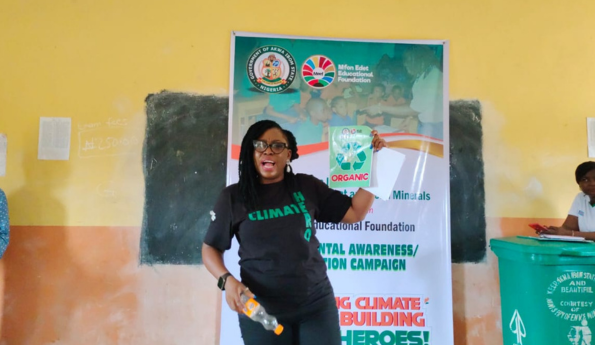
Mfon Edet leading a workshop on environmental protection.
Mfon Edet is a Global Women In Management alum who has spent her entire career working to support environmental protection and sustainability in her home country of Nigeria. In 2014, Edet created a foundation—Kids-Cycle Enlightenment Campaign—that runs environmental programs in schools to teach children about climate change and resource management, specifically focusing on the need to recycle and upcycle. Kids-Cycle went on to be endorsed by the Ministry of Environment, allowing her to create recycling programs in schools across Nigeria through which she facilitates conversations with students and their families on how to dispose of garbage more sustainably. Read more here.
Giving Back to Her Community: Fostering Financial Freedom for Women in Guyana
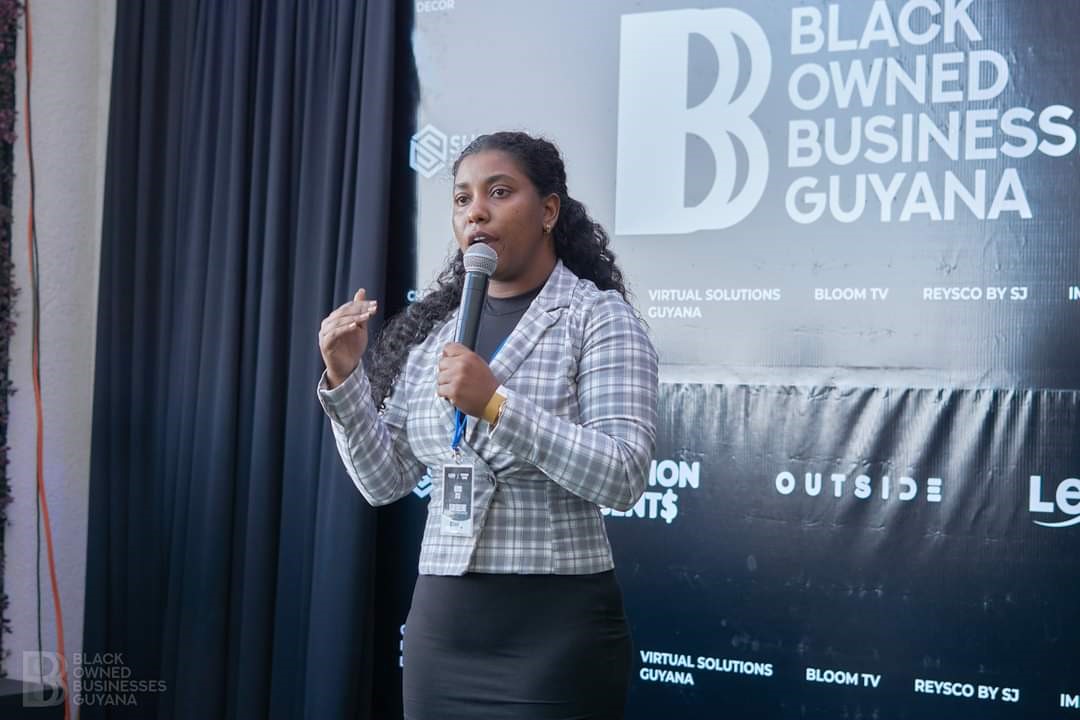
Shamela John speaking at a Black Owned Business Guyana event.
Shamela John is the founder of RESYSCO, a financial management firm based in Guyana. An accountant by trade, she faced many obstacles on the way to creating her own business. From a young age, she struggled in Guyana’s male dominated society. She had dreams of building her own business, and the Global Women In Management program gave her the tools to actually do it. With training and guidance, she narrowed her focus and identified a unique niche in the market. Her company provides organizational financial services for women who are starting their own business. Read more here.
Breaking Stereotypes, Leading With Persistence

Fatema Abdulla Hadroom Alghfeli speaking at the FWRD Digital Conference, an energy sector event.
Fatema Abdulla Hadroom Alghfeli, a manager at Weatherford Oil and Gas, was raised in a strict family in Dubai—a place with a history of limiting how far women could go in the workforce. Despite the obstacles, Alghfeli set her sights on a career path that would enable her to make a positive impact within her community. Building on her years of hard work and wanting to achieve even more, she participated in the Global Women In Management program in 2012, where she participated in capacity building sessions and received mentoring to help her further her career. We reconnected with Alghfeli recently to learn how her experience back then affects her work today. Read more here.
Counterpart Alumna Becomes Champion of Women’s Inclusion in Nigerian Development

Nne Bassey Abraham, CEO of Our Ladies Development Centre in Nigeria.
Nne Bassey Abraham, CEO of Our Ladies Development Centre in Nigeria, says although women constitute nearly half of Akwa Ibom state’s 3.9 million residents, they’ve traditionally had little or no voice in local governing. Abraham, through Counterpart’s Global Women in Management program realized that empowering women is more than simply encouraging them to take interest in policymaking, it’s also about engaging public officials, key partners and stakeholders in women’s development initiatives. Read more here.



